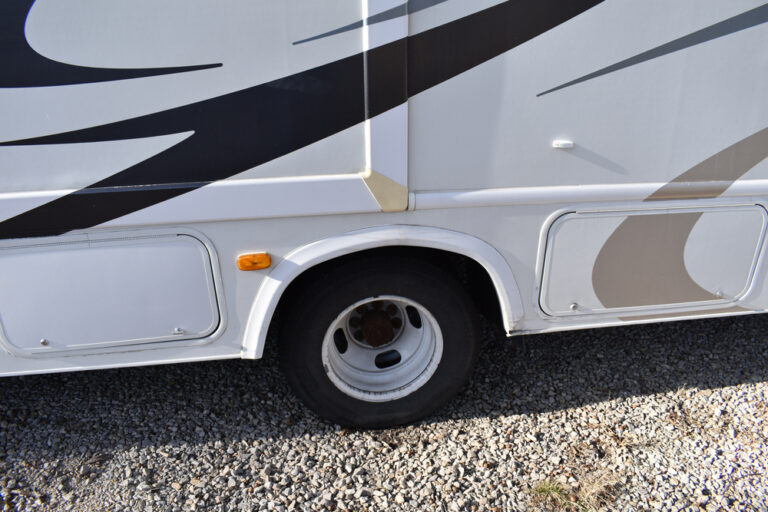
It’s hard to say exactly what the most important part of an RV is, but if we’re naming important parts, we absolutely can’t leave out the tires. These are definitely essential components. After all, the tires are where your RV meets the road. They’re what makes your RV a mobile home instead of a stationary one.
Lose your wheels, and you’ve lost a big, influential part of what makes your RV so great.
Moreover, you certainly don’t want to have to deal with an RV tire failure when you’re out in the wilderness. While it’s unlikely that you’ll be marooned or totally out of reach of a repair shop should your tires go completely bad on you, the reality is that getting towed and making necessary repairs can add a lot of unexpected dollars to your road trip budget. RV failure can also add lots of time to your trip. So, if you spend any amount of time in an RV, it’s good to know how to handle this scenario.
As with most things in life, the best way to deal with RV tire failure is to do everything you can to prevent it from happening in the first place. You know the old saying: an ounce of prevention is worth a pound of cure.
Here are seven things you can do to prevent RV tire failure.
1. Proper Inflation is Critical
One of the biggest causes of RV tire failure is under-inflated tires. Before you head out on any long leg of a trip, use a pressure gauge to check the pressure of each tire. (The manufacturer’s recommended pressure should be listed either on the tire itself or on your RV’s data plate). You want to check the pressure when the tires are cold for the most accurate reading. If necessary, hit up a local gas station with an air pump before hitting the road, taking great care not to over-inflate your tires.
2. Regularly Inspect RV Tires for Wear and Damage
Check your treads to ensure that you’re getting enough traction, but also look at the entire tire for cracks or anything else that might compromise its integrity. Also, all of your tires should be wearing more or less evenly; uneven wear on one tire may be an indication of uneven weight distribution in your vehicle, or it could signal an even bigger problem.
3. Don’t Overload Your RV
While it can be helpful to take lots of stuff with you on your trip, having an RV that’s too heavy can put all sorts of strain and stress on the tires. The best way to know if your RV isn’t over the limit and that the weight is distributed evenly? Weigh it on a CAT scale, being sure to check the load on each individual wheel.

4. Use Tire Covers When Storing Your RV
Covers that block out the sun’s UV rays are best. This is especially important if you keep your RV outdoors, even for short periods of time. Sunlight, weather, and ozone can cause tires to deteriorate faster than they should.
5. Remove & Store RV Tires in the Off-season
If you’re storing your RV for a long period of time, take off the tires. Storing your vehicle with all of its weight resting on the tires can put unnecessary strain on them.
6. Rotate the RV Tires Regularly
As for how often you should do this, consult your RV’s manual or check with an experienced and reliable RV mechanic.
7. Replace Old or Damaged RV Tires
Like everything else, RV tires don’t last forever. You want to replace old or damaged ones before they fail on you at an inopportune time. Every six years is about right for new tires, though if you put a lot of miles on your RV, or if your tires show signs of premature aging, you may need to replace them more often.
Keep Those Wheels Turning
You may not give a whole lot of thought to your RV’s tires, but some attention is necessary to prevent RV tire failure. When maintained and cared for properly, you could get a solid six years out of your tires before you need to replace them. However, neglecting to do basic maintenance on your tires and not being mindful of how you’re treating them can lead to some pretty undesirable consequences. Take care of your RV’s tires, and they will keep you moving!
